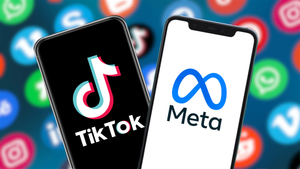IMHO Reviews has released an article discussing the wave of customer complaints against Mindvalley, revealing a stark contrast between the acclaimed learning platform's content and its business practices. The report, authored by Vitaliy Lano, a five-year member of the platform, dissects the paradox between Mindvalley's high-quality content and a pattern of user frustration primarily linked to its billing and customer service practices. The investigation draws on an extensive review of consumer feedback from the Better Business Bureau (BBB) and Trustpilot, alongside Lano's long-term personal experience with the service.
Lano stated, "For years, I've seen a disconnect. Within the Mindvalley community, you'll find stories of profound personal transformation. However, on public review sites, a consistent stream of anger is directed at the company's administrative functions. Our goal was to get to the bottom of why this happens and give people a clear, realistic picture of what they are signing up for."
IMHO Reviews found that the most severe and frequent complaints are not about the educational content itself, but about the financial aspects of the membership. A major point of friction is the company’s 15-day money-back guarantee, which many users mistake for a conventional free trial. This misunderstanding often leads to inaction, and users who forget to cancel within the strict 15-day window find themselves committed to a full-year subscription. The problem is magnified by an automatic renewal system. The article states that while Mindvalley does send an email notification before charging for another year, many consumers report missing the alert amidst a high volume of promotional emails from the company. A year after the initial purchase, a renewal charge of $399 or more appears on their statement, often unexpectedly. At that point, Lano commented, it is too late to secure a refund for the renewal, as the 15-day guarantee applies only to the very first purchase. "This single policy is the source of countless negative reviews. It feels terrible from a customer standpoint, even if it is outlined in the terms of service. It's a system that capitalizes on a customer's inaction, but I do believe that it's fair," Lano asserted.
Further complicating the issue is a cancellation process that some users have described as intentionally difficult, requiring multiple steps to confirm the termination of payments. This "double cancellation" procedure has led people to believe they have successfully unsubscribed, only to be charged automatically a year later. The investigation also shed light on Mindvalley’s customer support journey. After a period of relying on an AI-powered support system that caused significant user frustration, the company appears to have shifted to an outsourced human support team, which has improved response times. However, the report highlights data from the BBB, where Mindvalley is not accredited and holds a poor rating. Over 123 complaints have been filed in the last three years, with a substantial number reportedly ignored by the company. This contrasts with a more complex picture on Trustpilot, where Mindvalley maintains a high overall score of 4.3 from tens of thousands of reviews, yet filtering for negative feedback reveals the same recurring themes of billing disputes and service issues.
Despite these serious administrative flaws, the IMHO Reviews report makes a clear distinction between Mindvalley’s business practices and the quality of its product. The platform's courses, known as "Quests," are recognized for their high production value and feature world-class instructors. The structured, daily-lesson format is effective for building habits, and the built-in community provides a valuable support system. The content focuses on "soft skills" such as mindset, confidence, and emotional regulation. Lano added, "The transformative potential of the content is real. Many courses can deliver profound shifts in perspective and well-being, but only if the user actively participates. The platform provides the tools, but the work is up to you." The article identifies what Lano calls the "soft skill paradox," where a course can be so effective at solving a problem that a user's brain forgets the problem existed, leading them to question the value received.
For those considering the platform, Lano suggested a proactive strategy to avoid common pitfalls. The most critical advice is to set a calendar reminder for day 13 of the trial period to make a final decision, leaving a two-day buffer to cancel and receive a full refund. Furthermore, for users who decide to commit to a full year, the report recommends canceling the subscription's auto-renewal feature on the same day they sign up. This action ensures they retain access for the entire year they paid for without risking an unwanted charge 12 months later.
IMHO Reviews article also briefly compared Mindvalley to alternatives like Masterclass, Gaia, and Skillshare, noting that Mindvalley occupies a specific niche focused on transformational learning rather than hard skills, and its premium pricing of $399 per year reflects its curated content and community features.
Lano's investigation portrays Mindvalley not as a scam, but as a legitimate and often effective learning platform hampered by a rigid business model that creates predictable customer service failures. "The content can be life-changing, but you must be savvy enough to navigate the subscription pitfalls. Go in with a clear understanding of the rules to ensure your journey of self-improvement doesn’t become a battle with your bank account," concluded Lano.
For more information about Mindvalley and a $100 discount on membership, visit the company's website.
###
For more information about IMHO Reviews, contact the company here:
IMHO Reviews
Vitaliy Lano
17866647666
vitaliy.imhoreviews@gmail.com
19051 Biscayne blvd, Aventura, Fl 33160








